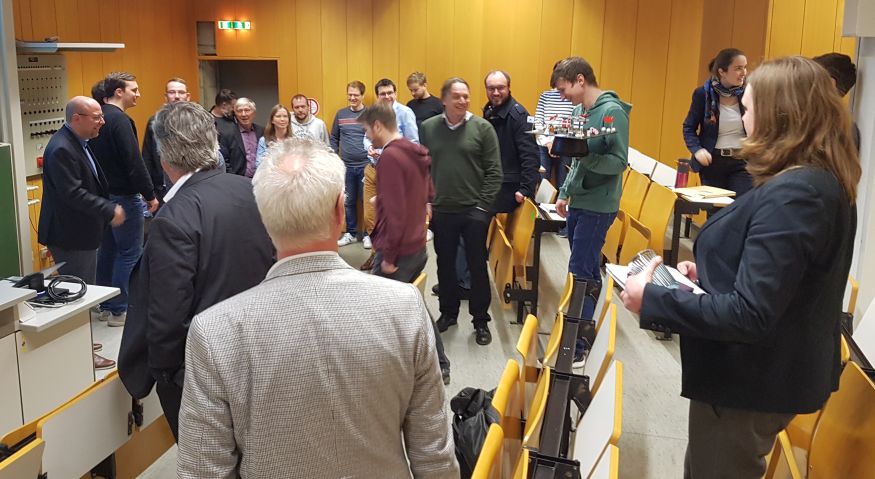Thursday, December 19, 12.30 - 1.30 p.m.
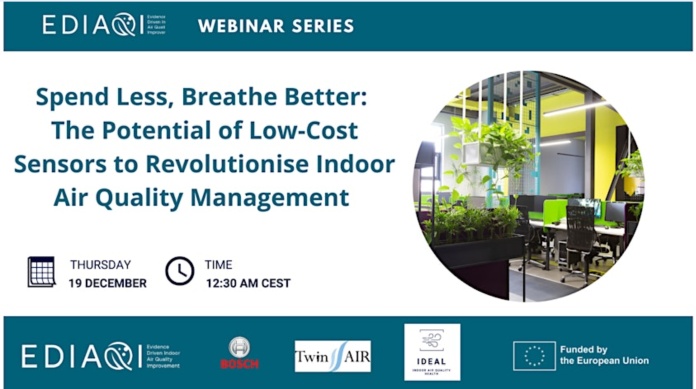
This webinar, organized by the EDIAQI project (https://ediaqi.eu/), will highlight the potential of low-cost sensors for monitoring of Indoor Air Quality (IAQ). Together with representatives of Bosch Sensortec and experts from two European projects, Prof Andreas Schütze will discuss the topic "Sensors on the Small Scale: the Future of Affordable IAQ Monitoring".
Register online for free participation.
Condition monitoring (CM) of components and processes using machine learning (ML) is one of the central promises of Industry 4.0. Many successful examples have been demonstrated under laboratory conditions. However, the transfer to actual industrial application is proving difficult. The main challenge remaining is the data quality required for developing a meaningful and robust ML model: in industrial applications, most data represent the “good” condition, while samples for different fault scenarios are typically scarce. Furthermore, comprehensive training data are required covering all relevant circumstances to allow successful CM under changing environmental conditions and other causes of domain shift. Even if extensive data are available, most effort is spent on their organization to delete outliers, ensure correct labeling etc.
The tutorial will address these issues with two main approaches. The first is a checklist to guide users through the complete process of an ML project, starting with project, measurement, and data planning proceeding to data acquisition, checking and pre-processing up to finally building and validating the ML model. This checklist specifically supports users with little experience in ML to be successful. The second approach is classical process optimization based on insights gained using explainable machine learning methods.
Presenters:
Tizian Schneider, Centre for Mechatronics and Automation Technology
Andreas Schütze, Lab for Measurement Technology, Saarland University
The flagship conference of the IEEE Instrumentation and Measurement Society, dedicated to advances in measurement methodologies, measurement systems, instrumentation and sensors in all areas of science and technology.
The International Symposium on Olfaction and Electronic Nose (ISOEN) is the world’s premiere technical conference in artificial chemoreception, olfaction and taste.
ISOEN 2024 provides a forum for scientists, engineers and practitioners to share their latest findings, innovations and products in the area of artificial chemoreception.
ISOEN 2024 will be held in Grapevine, Texas, a town right next to the Dallas Forth-Worth (DFW) International Airport, Texas, USA.
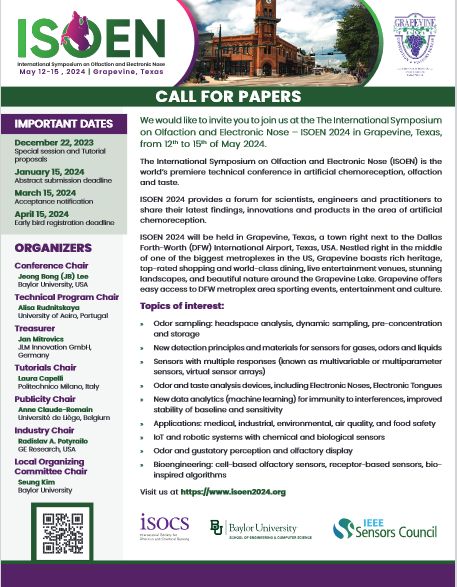 The Call for Papers is open until January 15, 2024.
The Call for Papers is open until January 15, 2024.
Topics of interest:
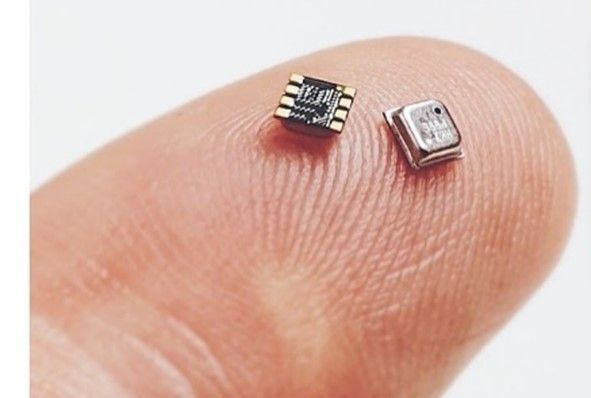
The tutorial introduced the “why, what and how” of monitoring indoor pollution with special emphasis on volatile organic compounds (VOC). These are major contributors to both short (headaches, dizziness) and long term (asthma, cardiovascular diseases, cancer) health effects. The tutorial focussed on the new standard VDI/VDE 3518 part 4 defining standardized test instructions and test gases for VOC detectors for indoor air quality measurement. Target audience were engineers in sensors and sensor systems R&D, quality control and calibration as well as in building management.
Many thanks to Dr. Richard Fix of Bosch Sensortec for the excellent collaboration both in getting the standard finalized and in presenting the new approach duuring this tutorial.
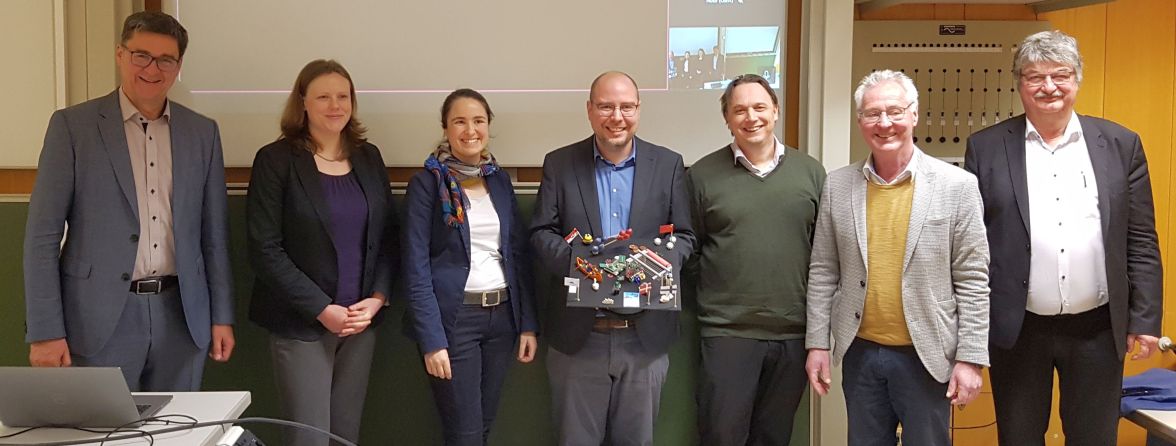
Am 20. März 2023 hat Dr.-Ing. Tobias Baur seine Dissertation im Rahmen seines öffentlichen Promotionskolloquiums vorgestellt und verteidigt - herzlichen Glückwunsch vom gesamten LMT-Team!
Herzlichen Dank an die Prüfungskommission mit (von rechts): Prof. Max Fleischer (externer Gutachter, Siemens Energy), Prof. Uwe Hartmann (Vorsitz), PD Tilman Sauerwald (Gutachter), Dr.-Ing. Sarah Fischer (akad. Beisitzerin), Prof. Kathrin Flaßkamp (Gutachterin) und Prof. Schütze.
Titel / title:
Dynamic operation, efficient calibration, and advanced data analysis of gas sensors: from modelling to real-world operation
This thesis demonstrates the use of dynamic operation, efficient calibration and advanced data analysis using metal oxide semiconductor (MOS) gas sensors as an example – from modeling to real-world operation. The necessary steps for an application-specific, selective indoor volatile organic compound (VOC) measurement system are addressed, analyzed and improved. Selective measurements of VOCs in the laboratory and in the field are successfully demonstrated. The calibrated models are compared with analytical measurements using release tests. The excellent agreement of the results is unique in current research.
Offizieller Aushang / official announcement
